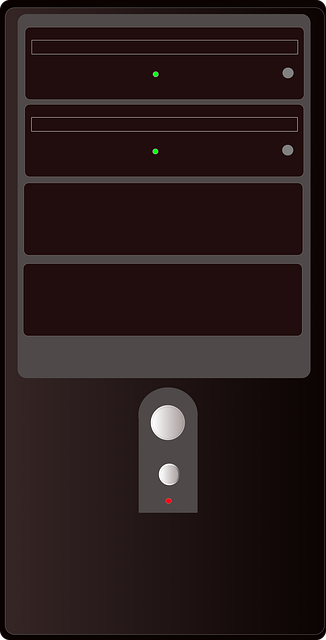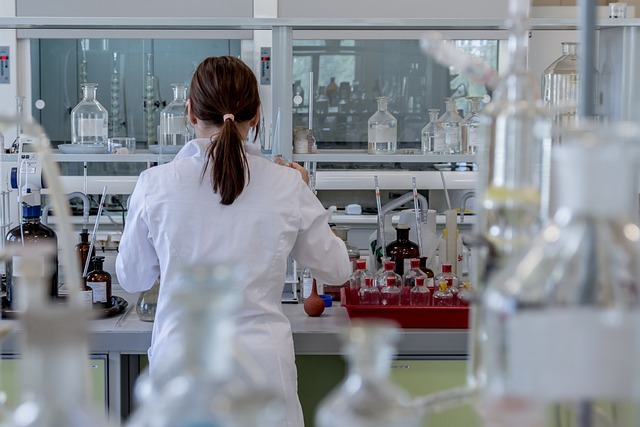In today's global healthcare landscape, Translation services for UK Medical Case Studies are essential for effective communication. Accurate translations improve patient care and outcomes by preventing misdiagnosis and incorrect treatments. These services overcome language barriers in diverse UK communities, enhancing patient engagement and overall satisfaction. Professional translators ensure cultural sensitivity, ethical guidelines, and medical expertise, facilitating better healthcare outreach and knowledge sharing among multicultural societies. With advanced technologies, translation services are transforming healthcare delivery, improving public health outcomes.
Are you ready to unlock better healthcare outreach through precise translation? In today’s globalized health landscape, understanding diverse patient populations is crucial. This article explores the transformative power of translation services in the context of UK medical case studies. From overcoming language barriers to enhancing ethical communication, we delve into the challenges and benefits of incorporating professional translation. Discover how successful integration can revolutionize healthcare delivery, ensuring accurate information for all.
- Understanding the Importance of Accurate Medical Translation
- The Role of Language Barriers in Healthcare Outreach
- UK Medical Case Studies: A Complex Landscape
- Challenges and Benefits of Incorporating Translation Services
- Choosing the Right Translation Partner for Healthcare Projects
- Ensuring Quality and Precision in Medical Translation
- Ethical Considerations in Translating Sensitive Case Studies
- Best Practices for Effective Medical Communication Across Languages
- Success Stories: How Translation Enhanced Healthcare Outreach
- The Future of Translation in the UK Healthcare Sector
Understanding the Importance of Accurate Medical Translation

In today’s global healthcare landscape, accurate medical translation is more than just a service—it’s a lifeline. For case studies and medical research to be effective, they must be accessible and understandable across diverse linguistic barriers. Translation services for UK Medical Case Studies play a pivotal role in ensuring that critical healthcare information reaches the right audiences, enabling better patient care and outcomes.
When translating medical content, precision is paramount. A single misinterpretation can lead to misdiagnosis or incorrect treatment plans. Professional translation services employ experts who not only understand medical jargon but also adhere to strict ethical guidelines and confidentiality protocols. This guarantees that case studies, clinical trials, and other medical documents are translated with accuracy, preserving the integrity of the original research while making it culturally sensitive and linguistically appropriate for global healthcare professionals and patients alike.
The Role of Language Barriers in Healthcare Outreach

Language barriers pose a significant challenge in healthcare outreach, especially when addressing diverse communities within the UK. Accurate and effective communication is at the heart of successful patient engagement and treatment outcomes. Many individuals from ethnic minorities or those with limited English proficiency may struggle to access healthcare services due to language differences, leading to potential health disparities.
Translation services play a pivotal role in overcoming these barriers. Providing UK medical case studies with professional translation ensures that vital information reaches all members of society, regardless of their linguistic background. By offering precise and culturally sensitive translations, healthcare organizations can improve patient understanding, consent processes, and overall satisfaction, ultimately fostering better health outcomes for all.
UK Medical Case Studies: A Complex Landscape

The landscape of healthcare outreach in the UK is diverse and complex, presenting unique challenges when it comes to sharing knowledge and best practices through case studies. These case studies, often rich in detail and clinical insights, play a crucial role in educating healthcare professionals and improving patient care. However, their effectiveness can be hindered by language barriers, especially considering the UK’s multicultural population and the constant influx of medical literature from around the world.
Translation services for UK Medical Case Studies are, therefore, an essential tool to bridge this gap. Professional translation ensures that these valuable resources are accessible and understandable for a wider audience, fostering better communication and collaboration within the healthcare sector. Accurate translations allow healthcare providers, researchers, and policymakers to learn from diverse case studies, enhancing the overall quality of care and patient outcomes.
Challenges and Benefits of Incorporating Translation Services

Incorporating translation services into healthcare outreach through UK medical case studies presents a multitude of benefits, yet it also comes with its challenges. One of the primary advantages is improved accessibility. By translating case studies into various languages, healthcare information becomes readily available to a diverse patient population, fostering better understanding and adherence to treatment plans. This is especially crucial in multicultural societies where language barriers can significantly impact healthcare outcomes.
However, integrating translation services is not without hurdles. Accurate and culturally sensitive translations demand specialized knowledge and expertise. Mistranslations or misinterpretations could lead to misinformation, potentially causing harm or confusion among patients. Therefore, selecting reliable and experienced translators is vital. Additionally, ensuring the translated content aligns with medical terminology and cultural nuances requires careful consideration and constant evaluation.
Choosing the Right Translation Partner for Healthcare Projects

Choosing the right translation partner is paramount when it comes to healthcare outreach, especially when tackling complex case studies. In the UK, where medical jargon and nuanced language are integral to patient care, accurate translations are non-negotiable. Look for partners who specialise in healthcare translations, understanding not just language but also medical terminology.
When selecting a translation service for your medical case studies, ensure they have experience handling sensitive information, adhering to strict confidentiality agreements, and meeting industry-specific deadlines. Expertise in translating UK healthcare documents, including clinical trials, patient information leaflets, and medical research papers, is key to ensuring the highest level of accuracy and cultural relevance.
Ensuring Quality and Precision in Medical Translation

When translating medical case studies for healthcare outreach, quality and precision are paramount. Medical terminology is intricate, and even small translation errors can lead to misunderstandings or misdiagnoses. Therefore, it’s crucial to engage professional translation services that specialize in UK medical documents. These experts not only possess deep knowledge of both source and target languages but also have experience navigating complex medical jargon.
Using advanced tools and industry-specific glossaries, they ensure accuracy and consistency throughout the translation process. Additionally, rigorous quality assurance checks are essential to catching any potential errors before final delivery. This meticulous approach guarantees that your case studies maintain their integrity while reaching a broader audience, ultimately enhancing healthcare communication and patient outcomes.
Ethical Considerations in Translating Sensitive Case Studies

When translating case studies within the healthcare sector, particularly in the UK, ethical considerations come to the forefront due to the sensitive nature of medical information. These documents often contain detailed accounts of patient journeys, treatments, and outcomes, which must be handled with utmost care and confidentiality. The process requires a deep understanding of both language nuances and cultural contexts to ensure accurate representation without compromising patient privacy.
Professional translation services for UK medical case studies should adhere to strict ethical guidelines. This includes obtaining informed consent from patients or their guardians when translating and sharing personal health data. Translators must also be adept at handling potential biases and ensuring the preservation of medical terminology and concepts across languages, preserving the integrity of the original content.
Best Practices for Effective Medical Communication Across Languages

Effective medical communication across languages is paramount in today’s diverse healthcare landscape, especially with translation services for UK medical case studies. The key lies in combining accurate translation with cultural sensitivity. When translating case studies, it’s crucial to engage professional translators who not only possess medical expertise but also understand the nuances of both languages and cultures involved. This ensures that complex medical terminology is accurately conveyed while preserving the ethical and cultural context.
Best practices include providing detailed source material, allowing ample time for translation, and encouraging back-translation by native speakers. Visual aids and simple language should be used to enhance understanding, as medical jargon can often be confusing for non-medical professionals. Additionally, maintaining confidentiality and data privacy is essential, requiring secure handling of sensitive information throughout the translation process.
Success Stories: How Translation Enhanced Healthcare Outreach

In the realm of healthcare, effective communication is a game-changer. Translation services have emerged as vital tools in enhancing outreach to diverse communities across the UK. By seamlessly bridging language gaps, these services have fostered better patient care and improved health outcomes. For instance, consider a case study where a local NHS trust needed to translate complex medical information for a newly arrived refugee population. Professional translation experts adapted educational materials, ensuring cultural sensitivity and clarity in languages ranging from Arabic to Kurdish. This initiative not only facilitated access to essential healthcare services but also empowered patients to actively participate in their treatment plans.
The impact was profound; patients expressed increased confidence in seeking medical assistance, leading to improved attendance at health checks and vaccinations. Similarly, a study focusing on UK medical case studies revealed that translated resources significantly elevated patient satisfaction rates among non-native English speakers. This success story underscores the power of translation services in navigating complex healthcare landscapes, fostering trust, and ultimately improving public health outcomes across diverse communities.
The Future of Translation in the UK Healthcare Sector

The future of healthcare in the UK is intertwined with efficient and precise communication, making translation services for medical case studies increasingly vital. As a country with a diverse population, the healthcare sector must bridge language barriers to provide optimal patient care. Translation plays a crucial role in ensuring that medical information, research findings, and patient records are accessible to all, regardless of their native tongue.
Advanced translation technologies and growing demand have led to enhanced accuracy and speed in document translation. Artificial intelligence (AI) and machine learning algorithms now enable the rapid processing of complex medical terminologies, making it possible to deliver translated case studies within tight deadlines. This advancement promises improved healthcare outreach, allowing medical professionals to share knowledge and best practices effectively across regions, languages, and cultures.
Translation plays a pivotal role in overcoming language barriers and enhancing healthcare outreach. As illustrated by various case studies, including those from the UK, accurate medical translation can significantly improve patient care and outcomes. By choosing reputable translation partners who prioritize quality, precision, and ethical considerations, healthcare providers can ensure effective communication across languages. The future of translation in the UK healthcare sector looks promising, with continuous advancements driving better accessibility and improved patient experiences. Incorporating translation services for UK medical case studies is not just a trend but a necessary step towards a more inclusive and efficient healthcare system.
